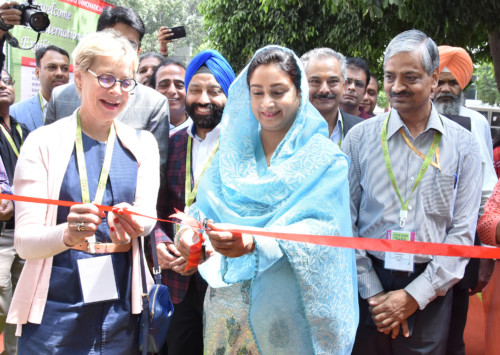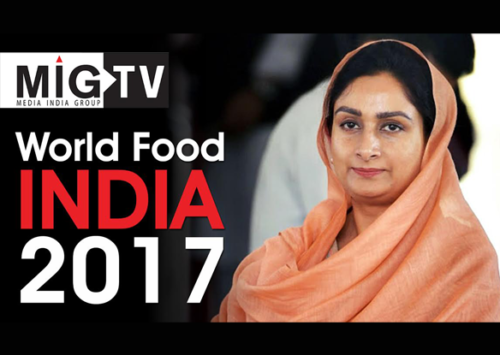Interview with Mohit Singla, chairman, TPCI
Biz@India
October 2019

Mohit Singla, Chairman, TPCI
Mohit Singla, chairman, Trade Promotion Council of India (TPCI), spoke to Biz@India about the importance of food shows for the Indian market and the bottlenecks that bog down the Indian food processing sector.
What is TPCI doing to promote domestic investments in India?
Organised annually, Indus Food, India’s official export-focused F&B trade fair showcasing India’s best line-up of food and agriculture products to international buyers, is an established name now. We at the TPCI have established the face of Indian food industry in the global market through our flagship show. We have been successful in convincing and motivating global buyers to come to India and source Indian food and beverage products. The turnaround has been radical so far, which at one point of time seemed impossible. From next year TPCI will initiate Indus food investment and invite list of interested investors willing to meet their matching partners.
How important is Anuga for the Indian market?
It is one of the largest trade fairs for food and beverage and provides an incredible global platform where our exporters can interact and connect with the entire constituents of the food value chain under one roof. Anuga has a lot to offer, participants can look forward to global trends, renowned exhibitors, groundbreaking innovations during the show. Almost 8,000 exhibitors from all over the world present their products and solutions to top-class trade visitors. On top of it all, the Anuga food fair celebrates its 100th anniversary! The mere fact that the show has survived 100 years speaks of its sustained success.
How according to you the landscape of the Indian food processing sector can be transformed?
India is at the lower end of the global agri export value chain. In horticultural products, for instance, India lacks in terms of uniformity and standardisation as well as its ability to cut down on losses across its value chain. There exists a gap in the kind of produce grown by Indian farmers and the SPS/TBT standards that exist in global markets. This gap translates into lack of farm-to-fork traceability of products. What has made attaining traceability difficult is the complexity of the distribution system, which involves not just the farmer and end consumer but several middlemen in the picture. This frequent change of hands makes it difficult for the consumer to hold someone accountable when issues such as food safety and quality arise, thereby impacting credibility of Indian farm exports.
In addition, several infrastructural bottlenecks also bog down the sector. More investment needs to take place in food processing machinery, grading and packaging. At the same time, the country lacks an end-to-end cold chain network. A proper cold chain infrastructure is a must for a tropical country like India, where food is likely to perish more quickly to reduce the post-harvest losses which are quite high in India. Further, lack of last-mile connectivity along the food production & distribution chain also hamper the quality of food – be it the raw materials or the finished products. For the food processing industry to transform these measures need immediate attention.
How was this year’s budget according to you? Has it taken necessary steps to boost exports?
The last two weeks have seen the government announce a slew of measures to boost exports, like the introduction of remission of duties and taxes on exports. The finance minister has also assured that refunds for input tax credit on goods & services tax will be fully automated to expedite the process. Most importantly, priority sector lending norms for export credit have been revised, thereby releasing an additional INR 360 billion to INR 680 billion as export credit under priority sector.
In another big bang measure to boost confidence, the government has also cut the corporate tax rate to about 25 pc, while for new companies, incorporated on or after October 1, 2019, making fresh investment in manufacturing will pay only 15 pc tax.
You are going to launch two sub shows ‘IndusfoodTech’ and ‘Indusfood-Chem’ in the forthcoming 2020 edition. What is the idea behind it?
The idea behind the launch of Indusfood-Tech and Indusfood- Chem version is based on the need of the industry where the entire food manufacturing value chain is integrated and the participants and buyers get the jigsaw fit of their requirement, under one roof.
Are you working in collaboration with Agricultural and Processed Food Products Export Development Authority (APEDA) or India Trade Promotion Organisation (ITPO) for any future events?
All the export promotion bodies are geared and work for common agenda to promote exports. We have done shows in collaboration with APEDA and ITPO earlier and are open to any future collaboration by leveraging the synergies and strengths.











